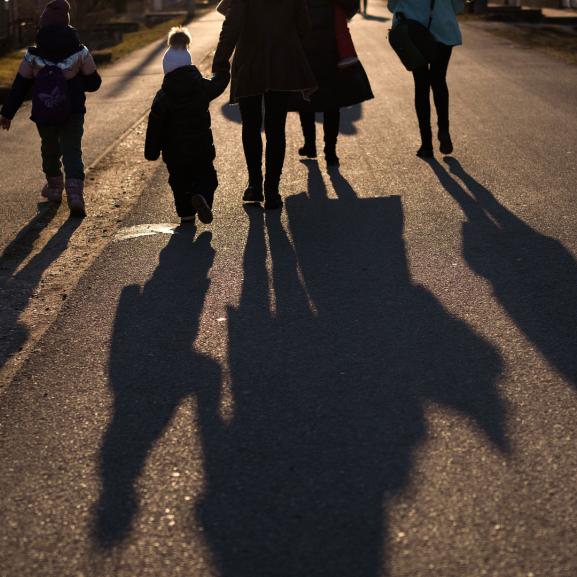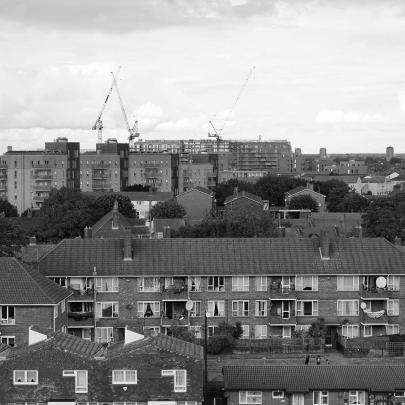"Regaining confidence that many of us lost" - The journey to rehabilitation
Last week our Survivor Activism team attended the International Rehabilitation Council for Torture Victims (IRCT) symposium in Mexico City, with representatives from torture rehabilitation centres across the world...
The symposium theme was ‘Delivering on the promise of the right to rehabilitation’ and below is an excerpt of a speech related to this topic by Kolbassia Haoussou, co-founder of Survivors Speak OUT (SSO).
When I arrived in the UK, I was deeply traumatised. I honestly did not know who I was. I isolated myself and I could not trust anyone. I didn’t see myself as having a mental health issue. I couldn’t. I was from a culture where there is a lot of stigma and shame attached to mental health problems.
When I arrived in the UK, I was deeply traumatised. I honestly did not know who I was. I isolated myself and I could not trust anyone. I didn’t see myself as having a mental health issue. I couldn’t. I was from a culture where there is a lot of stigma and shame attached to mental health problems.
I eventually became a client at Freedom from Torture who helped me see my experience from a different angle. They gave me a key to turn my life around, but this was only part of my long journey to rehabilitation: I believe that my journey to rehabilitation started when I was taken from my home one evening and tortured.
Throughout my journey to rehabilitation I have often wondered when rehabilitation begins and when it ends.
I started speaking to current and former service users from Freedom from Torture’s five regional centres to develop an understanding of the concept of rehabilitation from the survivors’ perspectives.
Over a period of six months, I spoke to over 100 survivors of torture and staff from Freedom from Torture. We explored two main questions:
- What does rehabilitation mean to you?
- Does rehabilitation have an end point?
I learnt that for many torture survivors, rehabilitation as we all know it here today, was unknown and unfamiliar; talking to a therapist or in a group was unchartered territory.
(Freedom from Torture) gave me a key to turn my life around, but this was only part of my long journey to rehabilitation: I believe that my journey to rehabilitation started when I was taken from my home one evening and tortured.
Like me, many people had preconceived negative views of mental health associated with stigma and shame.
The common themes that emerged in almost all discussions were that, for rehabilitation to be meaningful, a holistic approach is needed that includes a broad range of considerations:
- Participants talked about the desire and ability to "move on" from the past whilst learning to accept it. One client suggested that rehabilitation meant getting back to "being yourself" so that you could move on by learning "how to forgive, how to forget, how to move on with your life without having flashbacks or memories that make you depressed."
- Participants talked about being independent in the host country, and mentioned a number of barriers to rehabilitation including resolution of their legal status via a grant of protection. One client described insecurity about legal status as "like a movie and you press pause, you're not moving forward, you're just standing there and waiting for the Home Office."
- Participants talked about being empowered to take back control of their life and meaningfully navigate their own circumstances. Being able to speak out about what happened to them, and advocating for other survivors with decision makers or to public audiences was, for some, an important part of rehabilitation too.
- Participants talked about the conventional approaches to rehabilitation including therapy. All the clients suggested that therapy, both one-to-one and in group settings, was a very important part of their rehabilitation. One participant said "we are here alone and the only hope we have is at least someone to listen to."
Looking back to various moments of my own experience of rehabilitation, I felt different things at different times. Sometimes I wished I could have become the old person I used to be before torture.
And sometimes I would have liked to be a different version of my old self - more prudent and far-seeing but still rebellious against torture.
At other times I would have liked just to disappear somewhere, build a quiet life and forget everything.
But again my anger at the treatment I received in my home country and then later in the UK through the asylum process wouldn't allow me to forget and be quiet.
I see rehabilitation as a soul searching journey of pain, joy, acceptance of the past and perhaps the present, but also rediscovering. But above all, it is also about finding resilience and strength to accept yourself in all that you have been through and all that you now are or will be. It is a continuous journey.
I see rehabilitation as a soul searching journey of pain, joy, acceptance of the past and perhaps the present, but also rediscovering. But above all, it is also about finding resilience and strength to accept yourself in all that you have been through and all that you now are or will be.
One thing that torture attempts to achieve is to take away the ownership of your power and your voice.
Torture reduces you to silence; you feel numb. But that is why it was crucial for me and for us survivors to speak up so that we will never be silenced, and so that as a group of survivors, we can advocate for other victims and survivors. For us, that is also an important part of rehabilitation.
Through the clients I spoke to about the meaning of rehabilitation, I learnt that this is about holistic support through conventional approaches to rehabilitation but that it is also about feeling empowered, finding independence in the host country, securing protection without a risk of return to torture, and ultimately regaining the confidence that many of us lost.






